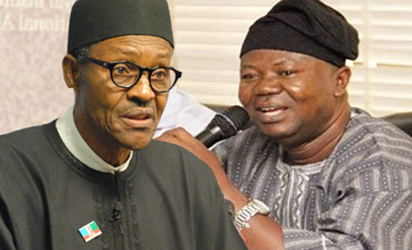AS the Academic Staff Union of Universities, ASUU, held its zonal meetings across the country on Tuesday, warning the Federal Government to desist from deducting salaries and pay shortfalls, education stakeholders are calling for mediation between the duo, saying the feud is a bad omen.
They stated that the introduction of Treasury Single Account, TSA, further compounded the financial problem of universities, as the internally generated revenue by institutions are no longer available for use.
According to them, there are some universities, who employed staff and depend on the proceeds from Internally Generated Revenue to offset the salaries.

These stakeholders urged the FG to intervene before the situation gets out of hand, as well as consider the lingering 2009 ASUU/FG agreement that they were yet to visit.
25 per cent deduction
Speaking in this regard, a senior lecturer in the University of Benin, who didn’t want his name in print, disclosed; “The 25 per cent deduction is not in all schools. In University of Ibadan and University of Uyo, their deductions started in 2015 because what the federal government sends to them is not enough to pay salaries. It just started in University of Benin in February and the deduction is 19.5 per cent, with claims to pay later. ASUU threatened to go on strike and four days later they paid half of the balance. Non-academic staff didn’t get anything.
“Initially they deducted 25 per cent from all staff and ASUU rejected it. Following the threat to go on strike management had to look for money to pay. The issue is that what the federal government is sending cannot pay all the staff salaries, hence the deduction to accommodate everybody. The promise is to pay back when there is improvement in allocation, we don’t know when that would be.
Two weeks warning: “The two weeks warning strike is because what they are sending to schools is not enough to pay staff salary. In January the salary released was short by 79 million, by February it was short by 159 million. If the school had paid staff in full in January about 300 persons would not have gotten salary. In February it would have been about 1,050 members of staff. Hence the deduction is so that everyone can go home with something.
“There is an argument ASUU raised. As Buhari took over, they were warned not to employ more staff but many VCs kept recruiting. The names of the new recruits are not on the federal list but the VC must pay them one way or the other. Remember that the TSA also took money away from the universities, all monies schools make now goes to the government, so the school does not have additional income to fall back on, that is why they are finding it difficult to pay. They are saying this situation will go on till September.
Psychological damage: Speaking on the damaging effect the deductions have on the well being of lecturers, the senior lecturer lamented; “The basic effect is that there are staff who took loans from cooperative, private individuals or banks, with the promise that they will pay every month. Some of us are doing contribution. When all these deductions have been made, what is left cannot feed the family. This brings down the lecturer psychologically, it invariably affects the performance of the lecturer.
“Next thing is to look for other sources of income which will further distract the lecturer from giving his best in class. The question is ‘what is the essence of killing yourself when it is only half salary you will get?”
Throwing light on the union’s stand, the Coordinator, ASUU Lagos Zone, Professor Olusiji Sowande, said ASUU will no longer accept Federal Government’s deliberate and unilateral reduction of universities workers’ salaries, stating that it is a clear violation of the principle of collective bargaining.
He said “The percentage reduction varies from one university to the other and above the 8% claimed by government officials. The February 2017 salary shortfall in UNILAG was N125 million and at University of Agriculture, Abeokuta, UNAAB, a shortfall of about N55.5 million was reported.”
Sowande who described the action as; “uncharitable, insensitive, inhumane, wicked and highly provocative,” said that “deliberate and continuous payment of fractional salaries to members would be a great threat to industrial harmony in the various universities.
‘’In February 2017, virtually, all federal universities were affected with government unilaterally cutting the salaries of university workers.’’
According to Sowande, by the salary deductions, the Nigeria academics have out of patriotism and commitment endured a poverty wage below the African average, in spite their refusal to fully honour the 2009 ASUU-FGN Agreement.
Asked if Federal Government should introduce school fees in the university system, Sowande who frowned at the suggestion said that Nigeria is capable of running free university education. ‘’If the resources of Nigeria is properly channeled, there is nothing wrong with providing tuition-free education,’’ he added.
He, however, urged universities’ Administrators and Governing Councils to seriously engage the government on the payment of the balance of the shortfall and ensure that subsequently the issue of shortfall in salary would not re-occur.
Students and vices
Declaring that students bear the brunt of the disagreement and incessant strikes dwindle the academic performance of students, Comrade Taiwo Bamigbade, Senate President, National Association of Nigerian Students, NANS, said; “ASUU strikes affect students’ reading ability, it distorts the school’s activities due to the shift in academic calender. The effect is a prolonged school year that exceeds stipulated periods. This is one major factor that contributes to producing underqualified graduates. The situation invariably turns some students into certificate seekers rather than knowledge seekers that they ought to be.
“Strike periods also give students room to partake in social vices like prostitution, stealing, and other evil acts. An idle man is the devil’s workshop,” added Bamigbade.
Failed dialogue: Proposing measures the FG and ASUU, could employ, Bamigbade said; “Dialogue is good but when it fails then it is a problem. I suggest government invests more in education, encourages more private universities, and the NUC needs to step up measures to improve quality, as most private universities are falling in standard. For instance, Lagos Business School, there is nothing wrong in having a University of Law, rather than having all the courses that end up over stretching funds.
Remedies: “In addition, there should be investment in our National Scholarship fund, which should include private universities. There should be a pension pool for both private and public lecturers, they should reduce the power of the union and help private universities get better lecturers. FG should hire professional negotiators. I do not understand how you agree to something and can’t fulfill it. Pay scale should be set and reviewed every 10 years taking account of inflation. And lastly, FG and ASUU should remember that the goal is for a better education. Every party needs to be patriotic.”
Students plead with FG
A student, Iheacho Oluchukwu , a 200 level student, University of Benin corroborated NANS’ senate president’s claim. Oluchukwu added that; “Industrial action, such as ASUU strike, is the major reason we have half baked graduates who are unable to prove their worth. This is because it is usually indefinite and deters from reading. Hence, by the time we resume, exams starts, most don’t read suring the strike because they do not know if it would be in vein.”
Oluchikwu who said she had not witnessed an indefinite strike, however, said a two weeks warning strike would be highly detrimental, as she called on government and ASUU to seek other measures beside industrial actions, to settle the rift.
“As a student, I suggest that the government tries its best to ensure that lecturers are paid, as well as cut any expenditures that is not important in the budget . Government should also have a scale of preference where lecturers and government workers come first, so as to be able to pay lecturers and invariable, they will never have to go on strike. This is very important because lecturers make or mar the lives of youths.
“On their part, lecturers should ensure their unions devise other means of pushing their demands to the federal government, as opposed to strikes,” Oluchukwu concluded.
Source: Vanguard




